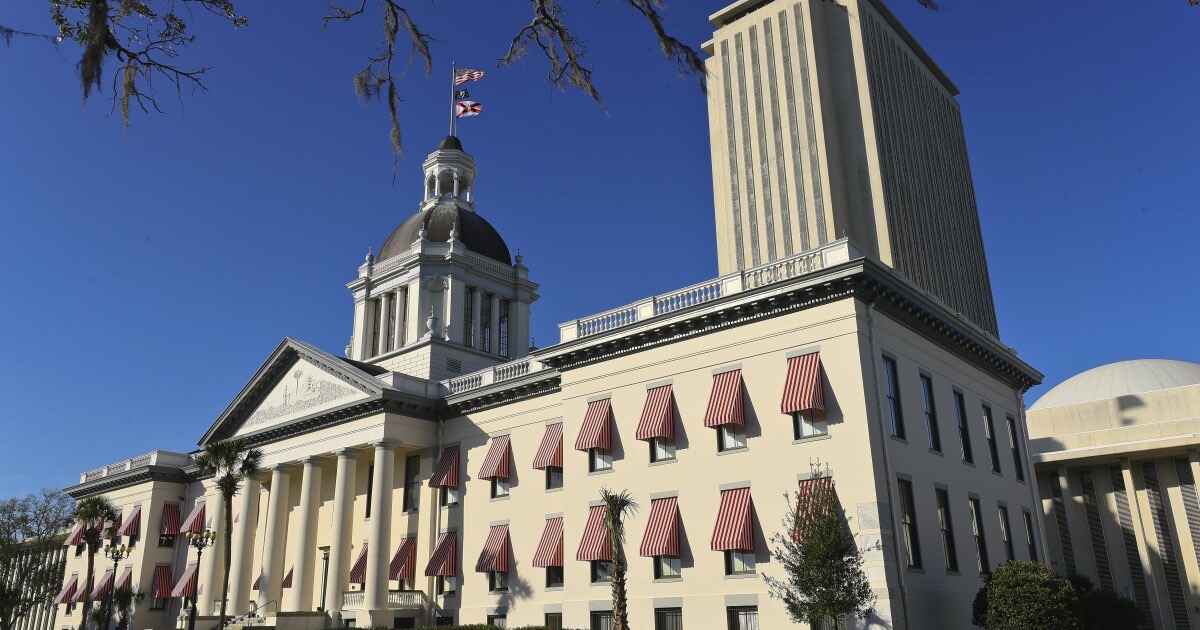The Florida Legislature is debating House Bill 999 (HB 999) or the Public Postsecondary Educational Institutions. The bill details legislation relating to policies regarding diversity, equity, and inclusion (DEI) programs in public universities. The bill was first filed in late February by Republican representative Alex Andrade. Soon after, Republican state senator Erin Grall submitted a Florida Senate version of the bill designated SB 266, also known as Higher Education. Florida governor Ron DeSantis has previously received criticism for his wide-reaching educational proposals. The bill is likely a manifestation of the governor’s ideals and an extension of his anti-woke crusade.
The first reading of the bill occurred on March 7, 2023, and it was received favorably by the Postsecondary Education and Workforce Subcommittee, which voted along party lines to advance the bill. DeSantis will likely sign the bill if both houses of the Florida legislature pass it. If the bill passes, the act will take effect on July 1, 2023.
HB 999 has received widespread backlash from students, akin to the criticism the Florida Parental Rights in Education Act (or the “Don’t Say Gay” Act) faced when it was introduced. HB 999 contains provisions that would eliminate or heavily restrict DEI programs and certain college majors relating to DEI. The 24-page bill explains that courses based on “unproven, theoretical, or exploratory content” may be subject to review. The vagueness of HB 999’s phrasing led to critics asking if this content includes theories explaining evolution, gravity, and theoretical physics. The passage would represent a regression of ideas that Florida’s leaders and universities encouraged four years ago through the “Chicago Statement.” Florida lawmakers, including DeSantis, emphasized and affirmed the importance of free speech in all matters. The statement guaranteed the ability to speak, challenge, and learn at university. HB 999 is a backpedal from DeSantis’s promises to protect higher education in 2019.
Opponents of the bill voiced concerns over the bill’s vague language. The American Civil Liberties Union of Florida provided a short list of what the bill could accomplish if passed.
- The bill outlines what course of study college students could choose from. It could prohibit fields of study centering around race and gender studies. Also, it recommends the rewriting of mission statements. A massive overhaul of leadership would provide the Board of Governors (BOG) power never seen before in the Florida state university system.
- Under this bill, the BOG would “provide direction to each constituent university on removing from its programs any major or minor in Critical Race Theory, Gender Studies, or Intersectionality, or any derivative major or minor of these belief systems.”
- It hands off faculty hiring processes and tenures to the governor’s appointees.
- “A state university is prohibited from using diversity, equity, and inclusion statements, Critical Race Theory rhetoric, or other forms of political identity filters as part of the hiring process, including as part of applications for employment, promotion and tenure, conditions of employment, or reviewing qualifications for employment.”
- Funding college programs that “espouse” DEI values would be highly restricted or banned altogether.
- Some fear this would eliminate Asian, Black, and LGBTQ+ student organizations. This could lead to ban activities promoted by multicultural student unions. The language in the bill caused concern for leaders. In an op-ed written for MSNBC, Florida Democrat state senator Shevrin Jones acknowledged that while the bill no longer contains clauses that directly threaten black Greek life, he cannot support the legislation due to its attacks on DEI.
- New educational requirements would prioritize neoclassical education focused on Western European civilization.
- These requirements include studies of the United States’ historical documents from the Bill of Rights to the Constitution.
Three teaching associations joined together and released a statement. The American Association of University Professors, the American Federation of Teachers, and the National Coalition Against Censorship said the bill would “destroy higher education as we know it.” The organizations strongly believe the bill would completely overhaul academic freedom, tenure, and university independence as people know it. These actions, in their eyes, would make public universities in Florida a cog in DeSantis’s political machine. Students are concerned that the bill is a form of academic censorship.
A first-year student who attends the University of Central Florida anonymously said, “By prohibiting certain areas of studies it disables a student’s ability to learn and therefore speak on certain subjects. If students don’t have a classroom environment to discuss their beliefs on race, gender, and social justice and are prohibited from forming groups to discuss them outside of the classroom, then they are left with no voice to speak on these issues.”
Although, state representative and sponsor of the bill Alex Andrade simply said the bill’s goal is to direct funding to proven fields and emphasize research. He claimed the bill doesn’t threaten academic freedom because the state should not subsidize fields of studies that “are not based in fact.” The concerns that HB 999 are wide-reaching. A junior from North Carolina said, “I think the provisions in HB 999 are very concerning and dangerous, even though it’s not concerning the state I’m from. Especially since HB 999 is defunding DEI efforts at various institutions and prohibiting fields of study revolving around race and gender studies, I think it’s just hypocritical and racist at its root.”
Protests of the bill occurred at some of Florida’s largest universities, such as the University of Florida (UF), Florida State University (FSU), and the University of South Florida (USF). Students began protesting the bill soon after its initial introduction to the legislature. Students at USF rallied outside a board of trustees meeting and held signs reading “Stop Death-Santis” and “Black Lives Matter.” Organizers included student associations that could be banned or restricted under this new legislation. The anonymous UCF student also added, “I’m concerned. I honestly don’t know how to react to anything this state or this country allows anymore. I mean, our physical safety within US classrooms has been violated continuously, yet there has been no change and little acknowledgment, and now our academic freedom is at stake.”
Other than the worrying threat of restraining students’ right to express their thoughts and ideas in college classes, The American Council of Learned Societies predicts the passage of this bill would lead to Florida universities losing accreditation for federal funds and scholarships. Numerous accreditation agencies have requirements for compliance with DEI initiatives. If the bill suggests universities rewrite mission statements to omit DEI commitments, then the university could lose funding and possibly see a decrease in enrollment from low-income families who may depend on these scholarships. The junior from North Carolina noted, “HB 999 would definitely influence my decision to attend a public university in Florida. I think it could be very restricting on the studies you select, and the multicultural organizations you can be a part of. I wouldn’t want to attend an institution where I don’t feel like I am represented and supported enough, that also suppresses my academic freedom that much.”
In the early years of his term, the governor focused on supposedly protecting K-12 students and supporting parents’ rights. In regards to the “Don’t Say Gay” Act, legislators argued that classroom discussion about sexual orientation or gender identity in kindergarten through third grade was not deemed “developmentally appropriate,” and discussion from fourth grade to the end of high school was required to be contextualized in a manner the state approved. The “Don’t Say Gay” Act is touted by supporters as a safeguard for children’s well-being. However, HB 999 would impact college students, most of whom are legal adults. Now, as DeSantis aims at higher education, his intentions are becoming increasingly unclear when it comes to who exactly he wants to protect. It may come down to the fact he wants to uphold the image of a “free” Florida he created.
On the other hand, the implications of censorship are undeniable because HB 999 is marred with unconstitutional clauses. This, however, is not the first time – and probably not the last – DeSantis has tested the limits of his power. The governor recently signed HB 1467 on March 25, 2023, which requires complete transparency of school districts about curriculum requirements. This transparency includes provisions for books to be “reviewed by a district employee holding a valid educational media specialist certificate.” DeSantis also announced the state would block the College Board’s AP African American studies through the “Stop WOKE” Act because, according to DeSantis and his administration, the course is a prime example of “woke indoctrination” due to the course’s framework of queer theory, intersectionality, Black Live Matters, reparations, and more. Not to mention, the recent overhaul of leadership at Florida’s liberal arts college New College, when the college’s president, Patricia Okker, was removed and replaced by former Republican legislator Richard Corcoran. The new board also suggested the school adopt a conservative curriculum, similar to the framework at Christian Hillsdale College. HB 999 only serves as another political item on DeSantis’s plan for the education system in Florida. The governor’s fight against “woke ideology” and parents’ rights will continue to unravel as he works toward a speculated 2024 presidential run.
Photo Credit: Phil Sears / AP





